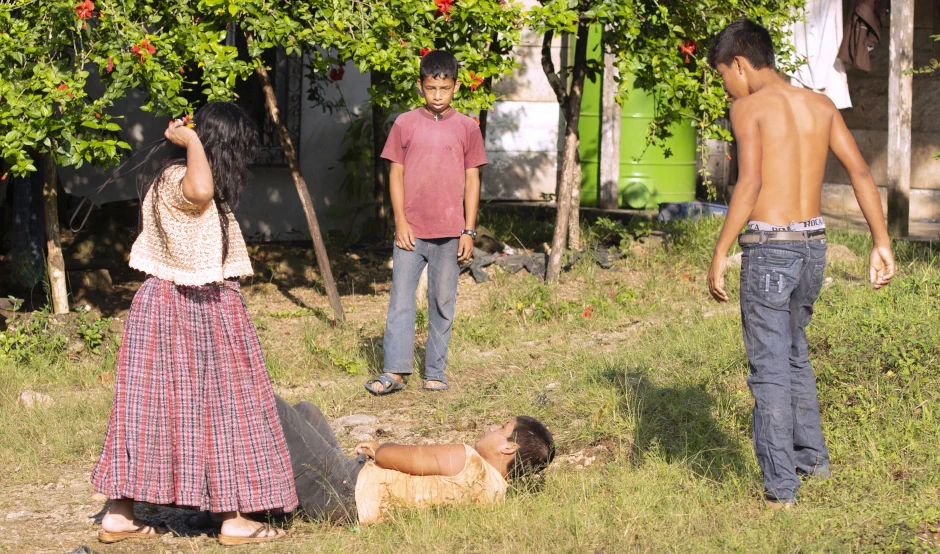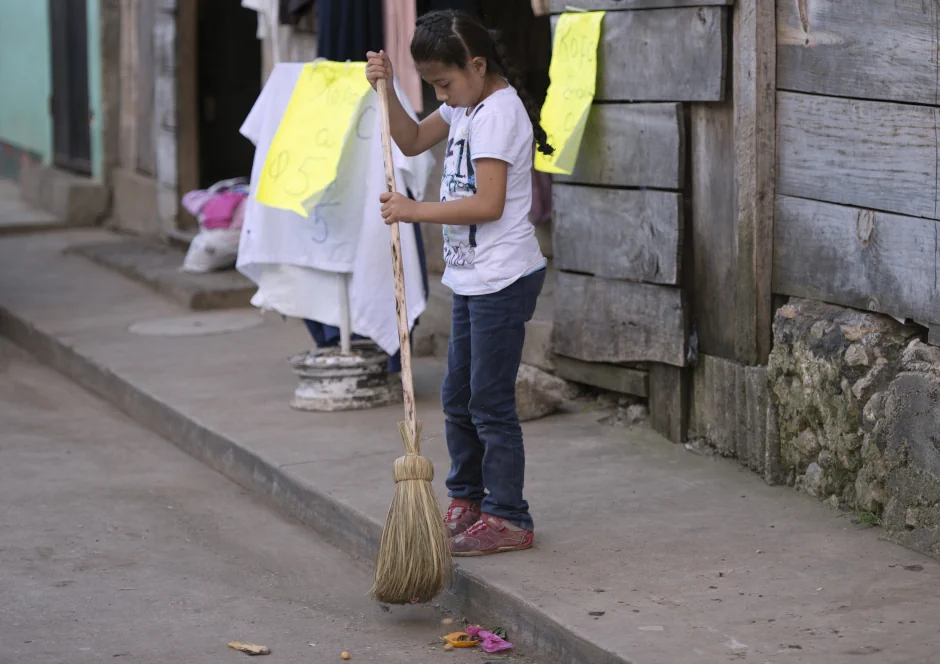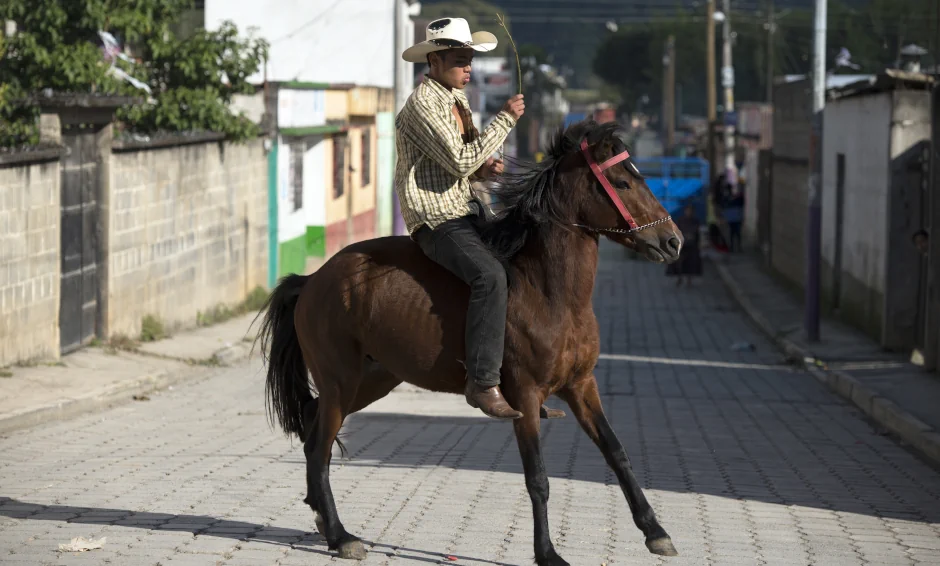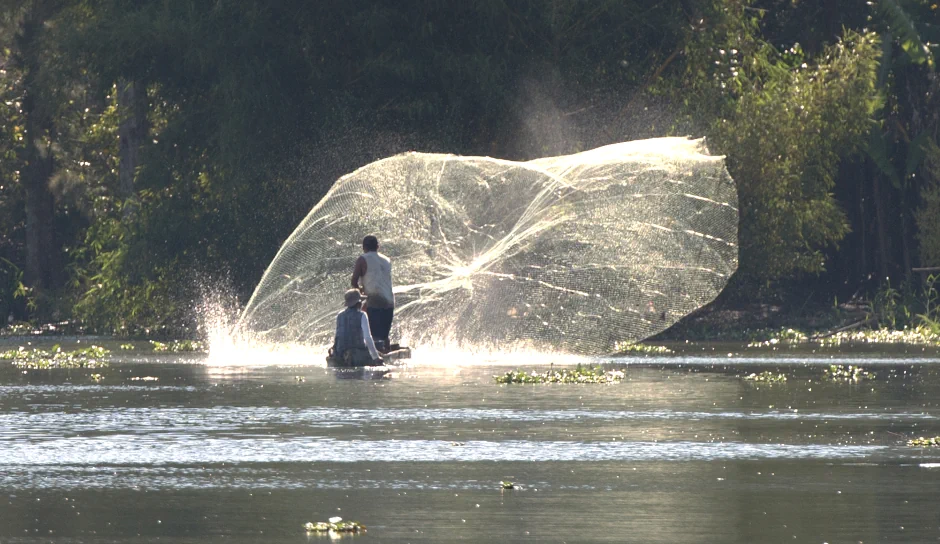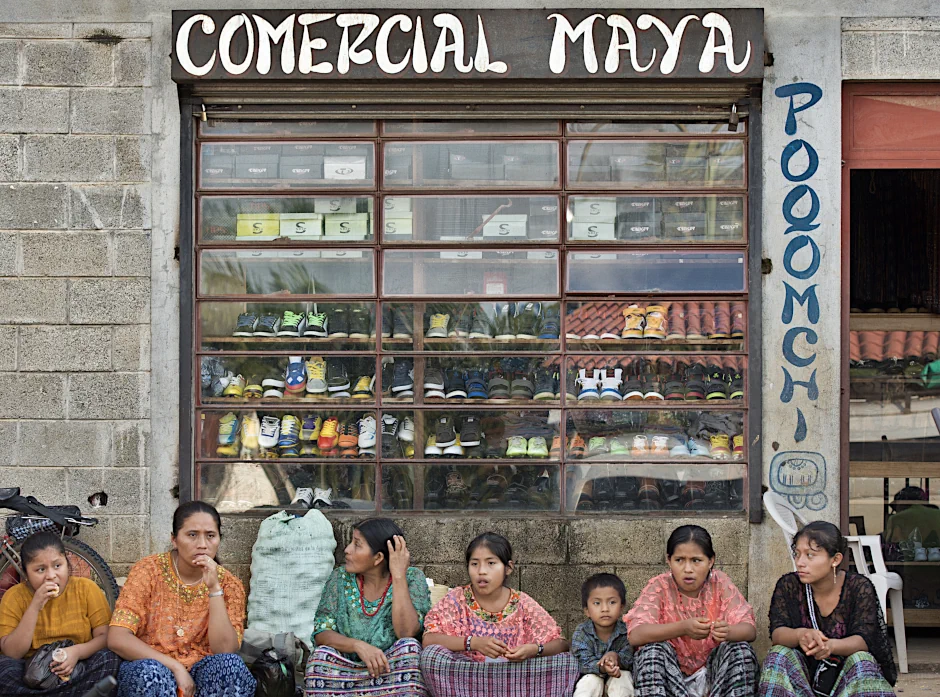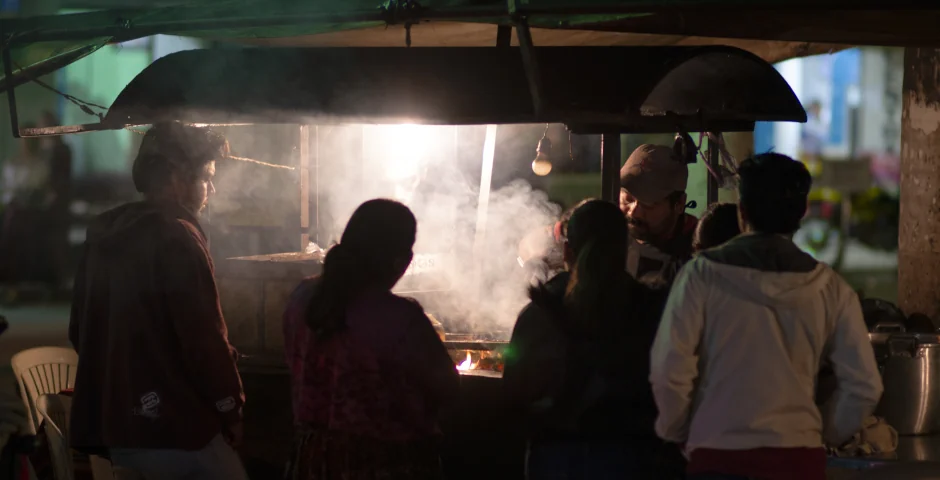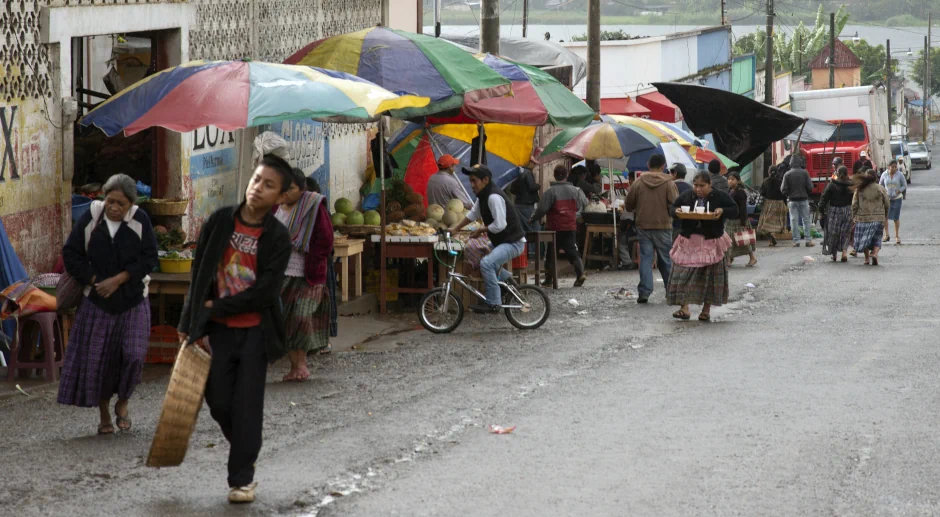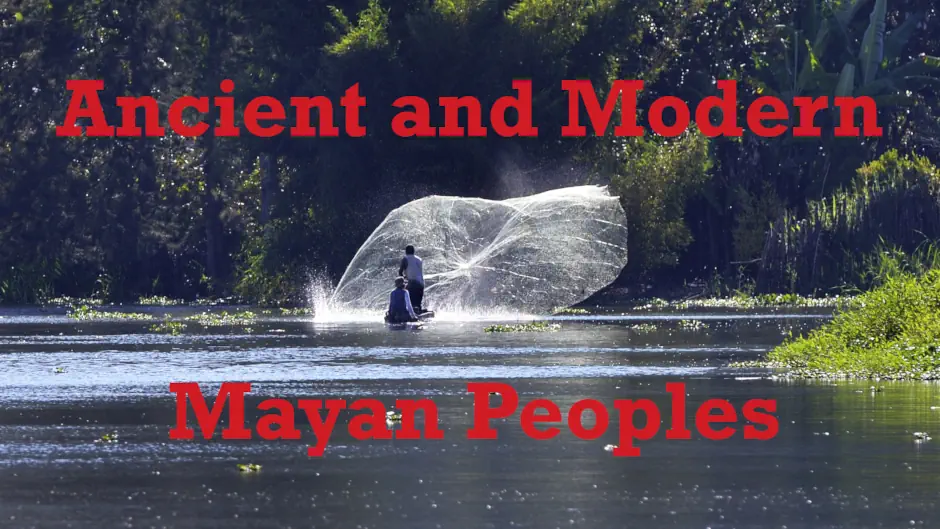The Indigenous Poqomchi' People
Ethnonyms: Pocomchi, Poconchi, Pokomchi, Pokonchi, Poqomchi Countries inhabited: Guatemala Language family: Mayan Language branch: Quichean
Unlike the Conquistadors, my first contact with the Poqomchi' Maya people was recent — late on a Monday afternoon one autumn a few years ago. As I approached a small town in the Guatemalan Central Highlands, two young brothers had gotten into a fight. It was soon spotted and stopped by their mother. I was reminded of how some aspects of human culture are the same the world over.
A few hundred meters further along the road, the scene was more tranquil as people were enjoying the final hour of the sun in the local park.
I spent the next few days visiting the area's Poqomchi' communities. While it is true that, like all Maya peoples, the Poqomchi' have incorporated elements of Christianity into their religious practices, it is not true that they are "... dominated by a religion that combines Roman Catholicism, ancient Mayan traditions and witchcraft."
That quote is from Impact Ministries who should be ashamed of themselves for failing to learn the lessons of the last 500 years. They are just one of many Christian missionary organizations who are effecting the erosion of Poqomchi' culture as well as misrepresenting them. Just like most cultures, the Poqomchi' celebrate events like births and marriages with a combination of alcoholic drinks, music and dancing. If that is witchcraft, then all ancient and modern humans are a species of witches.
The Poqomchi' have, effectively, now entered the modern world. Like most of Guatemala's Maya groups, they are attempting to regain land stolen from them in colonial times. Success is very rare. The most recent victory came in July, 2015 when three hundred Poqomchi' families in the department of Alta Verapaz were officially granted title to the land their ancestors had lived on for centuries.
The victory was especially sweet given that a hydroelectric dam project, Oxec II, had been approved just four months earlier. Many Poqomchi' (along with their cousins, the indigenous Q'eqchi' people) are trying to fight the project, claiming it will have large, detrimental effects on their communities and their land.
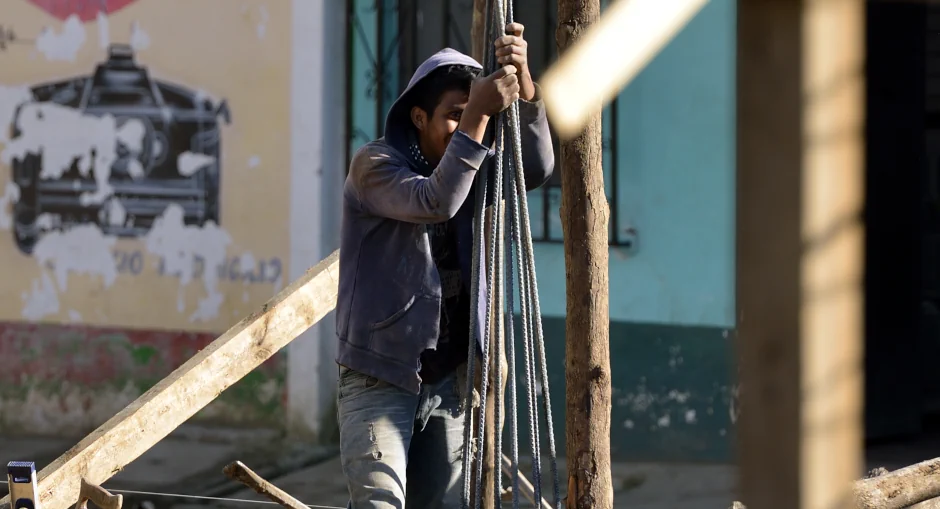
Ironically, many Poqomchi' men make a living today working in the construction industry on that same land. Poqomchi' women still hand-fashion elaborate blouses (huipiles) that are typical of most Maya women's dress seen in Poqomchi' communities and throughout Mesoamerica.
Increasingly, though, mass produced, imported clothing is replacing traditional attire. In fact, this has already happened for most Poqomchi' men and boys. One by-product of this trend is that it provides a form of employment outside of construction and traditional forms of income such as farming and artisenry. This supplemental income is relatively small, however, and the department of Alta Verapaz — where most Poqomchi' live — remains among the poorest economically.
On my final day in the department of Alta Verapaz, I realized something: In Poqomchi' communities, one day is much like another. I shot a time-lapse video that day as the late afternoon changed into the early evening. The footage, showing people making their way home via the town square, is included in our short film, Maya Timelapse, along with similar time-lapse video footage from Itza, Kaqchikel and Tz'utujil Maya communities in Guatemala.
Once the sun goes down there is little to do. Most people are ready to go to sleep and begin the next day. In larger villages and towns there is something of a night life. Vendors set up food stalls that attract "night owls" until around 9pm. I sat at one of these on my last evening. My experience would have been richer if I spoke the Poqomchi' language. Instead, a little Español and the universal language of smiles and laughter conveyed my and my hosts' appreciation of cultures that rarely meet.
Photography copyright © 1999 - 2025, Ray Waddington. All rights reserved. Text copyright © 1999 - 2025, The Peoples of the World Foundation. All rights reserved.

Waddington, R. (2016, revised edition 2023), The Indigenous Poqomchi' People. The Peoples of the World Foundation. Retrieved July 1, 2025, from The Peoples of the World Foundation. <https://www.peoplesoftheworld.org/text?people=Poqomchi'>
Web Links Poqomchi' resources list Researching Mayan Languages Guatemalans Fight Extractive Industries Resources for Learning Poqomchi' (Mayan) Books Chandler, D. and Cordón, T., (2015) Traditional Weavers of Guatemala: Their Stories, Their Lives. Loveland, CO: Thrums Books. Mayers, M. K., (1960) The Pocomchi: A Sociolinguistic Study. Chicago: University of Chicago Press.
